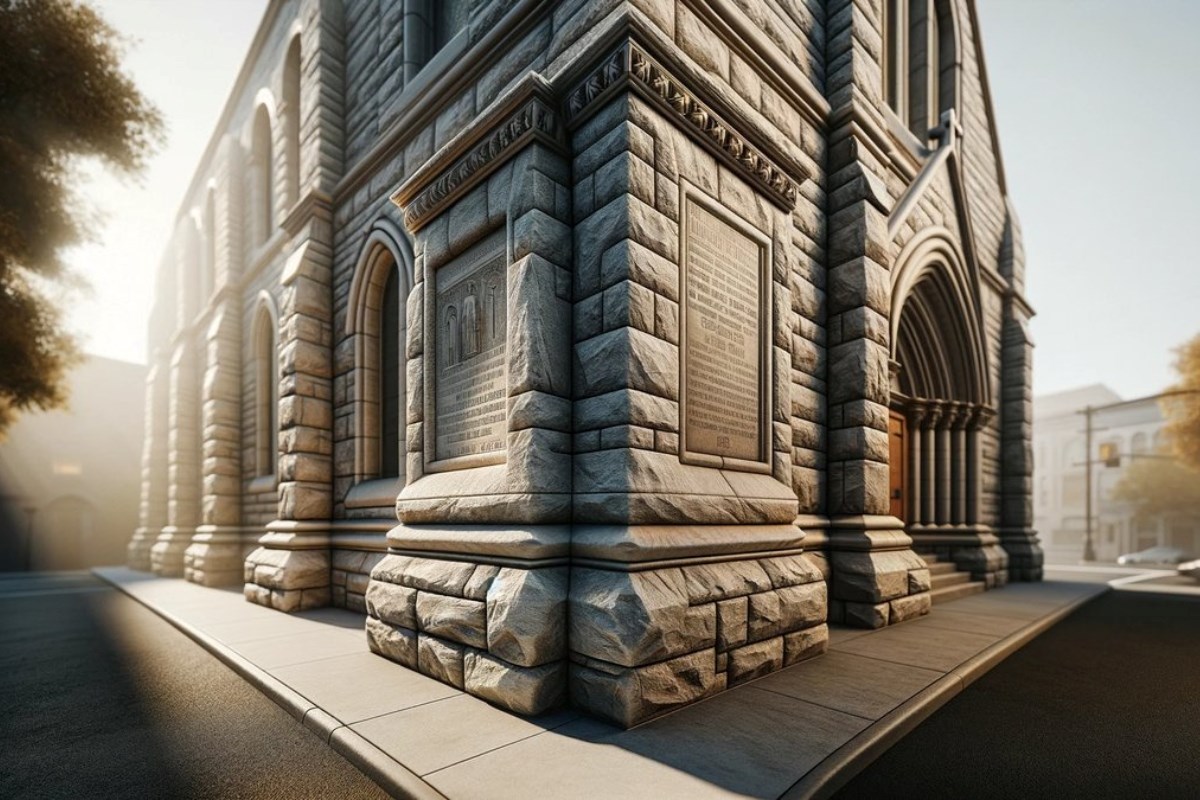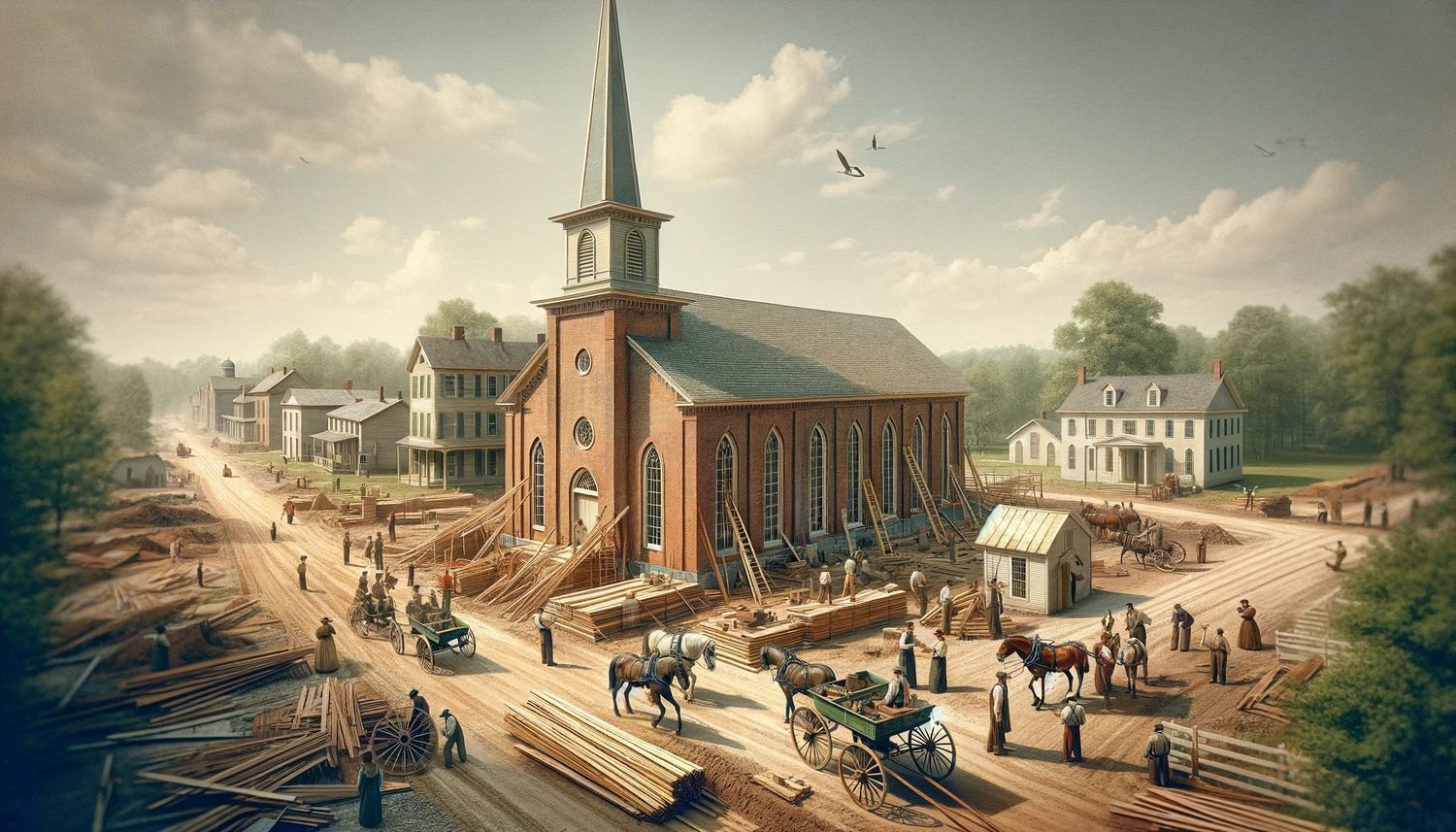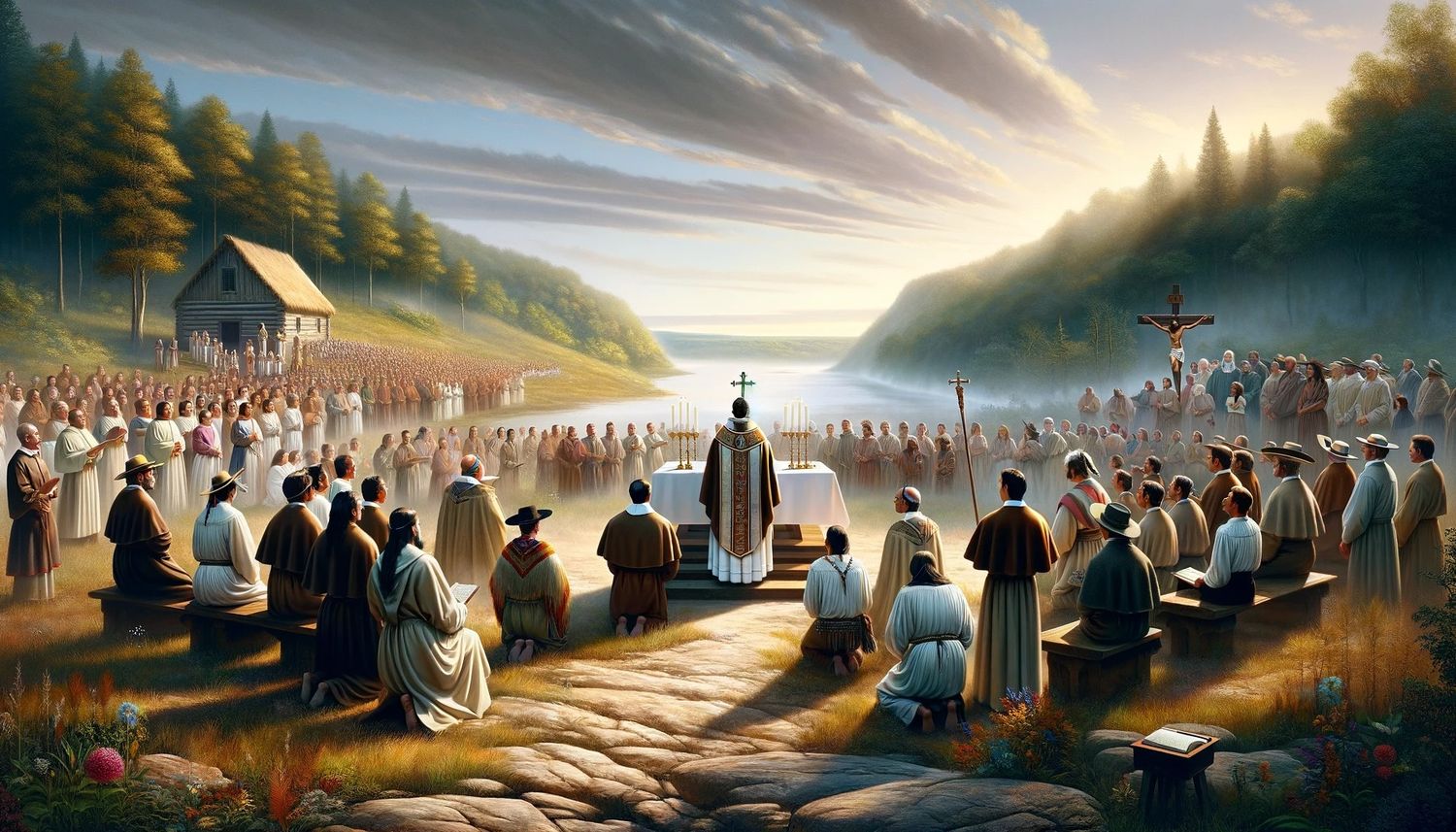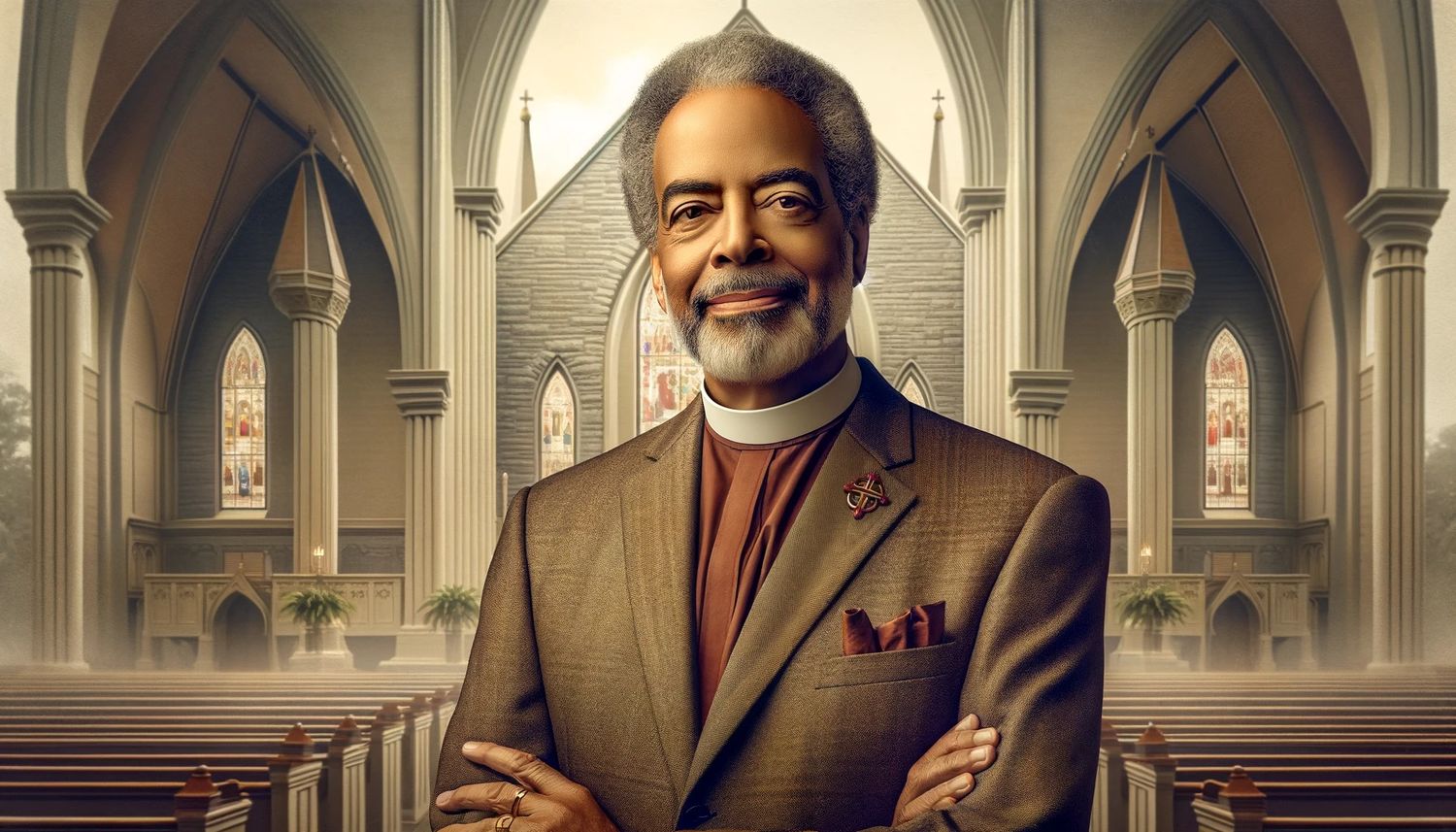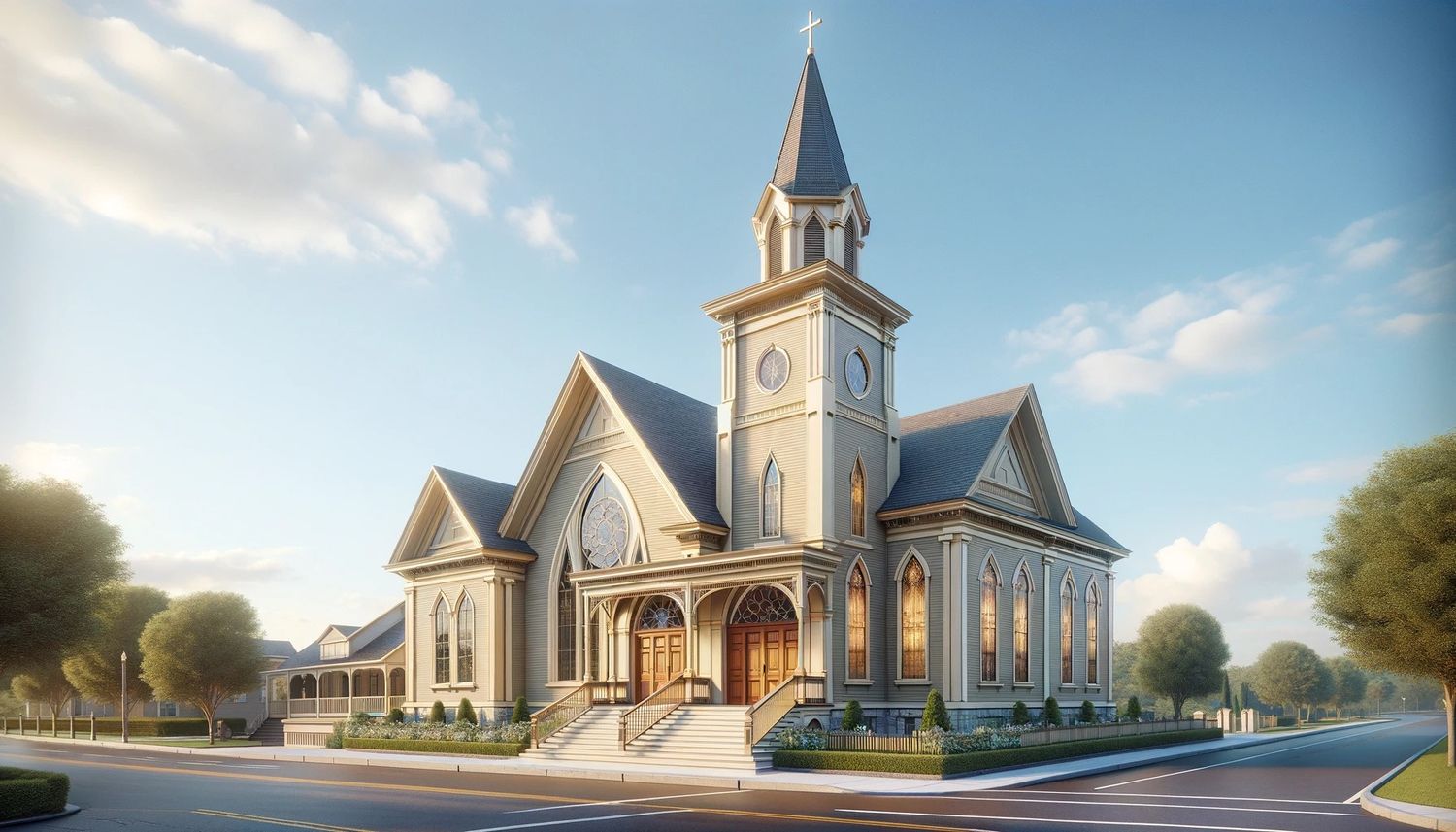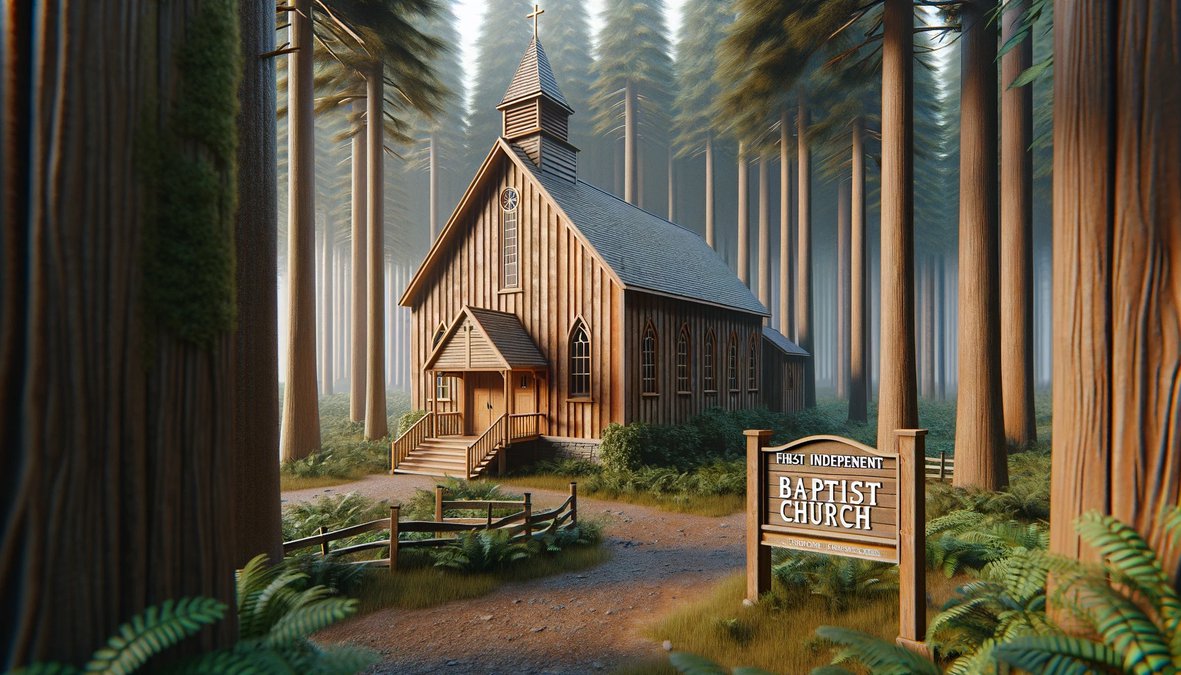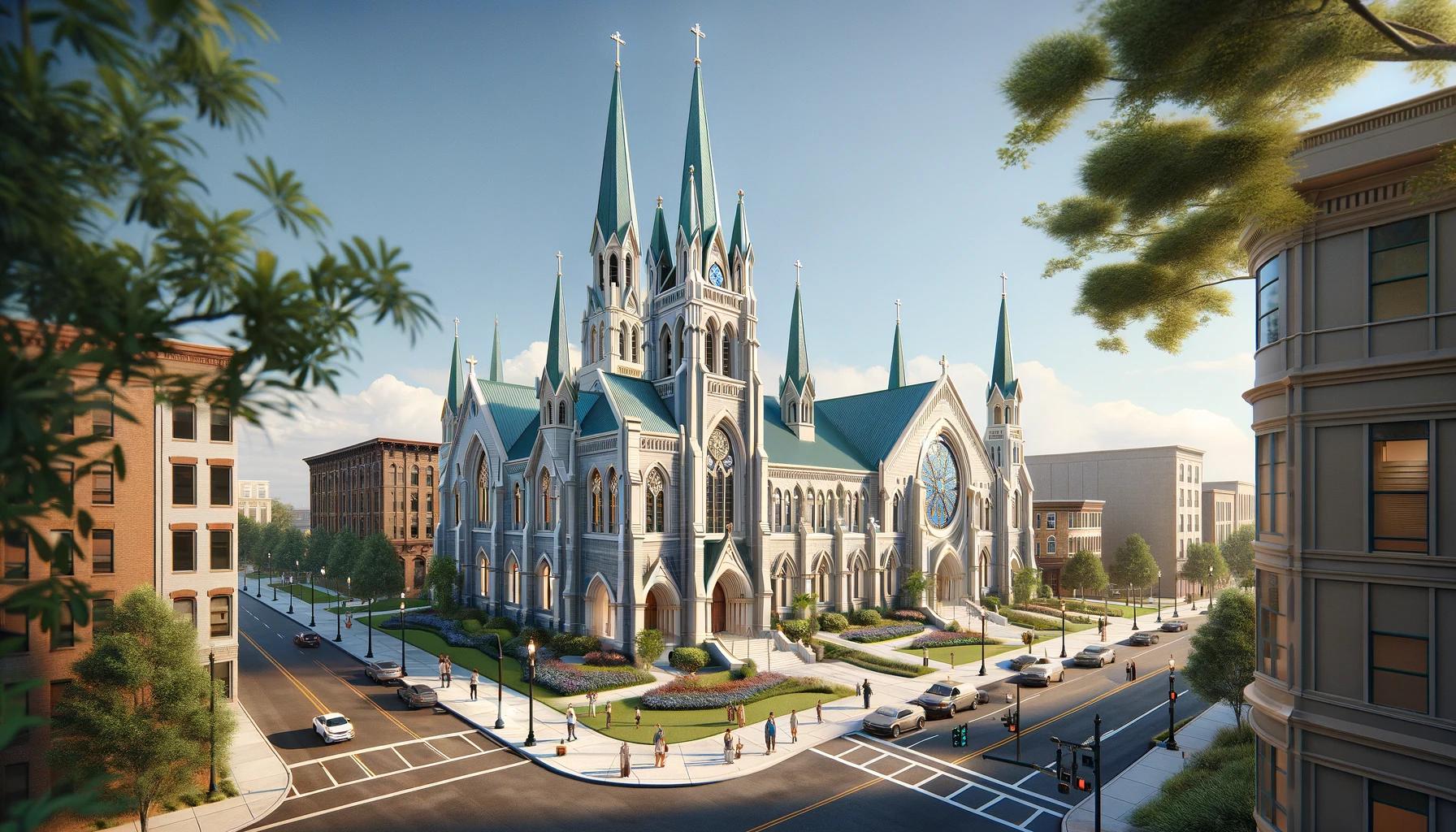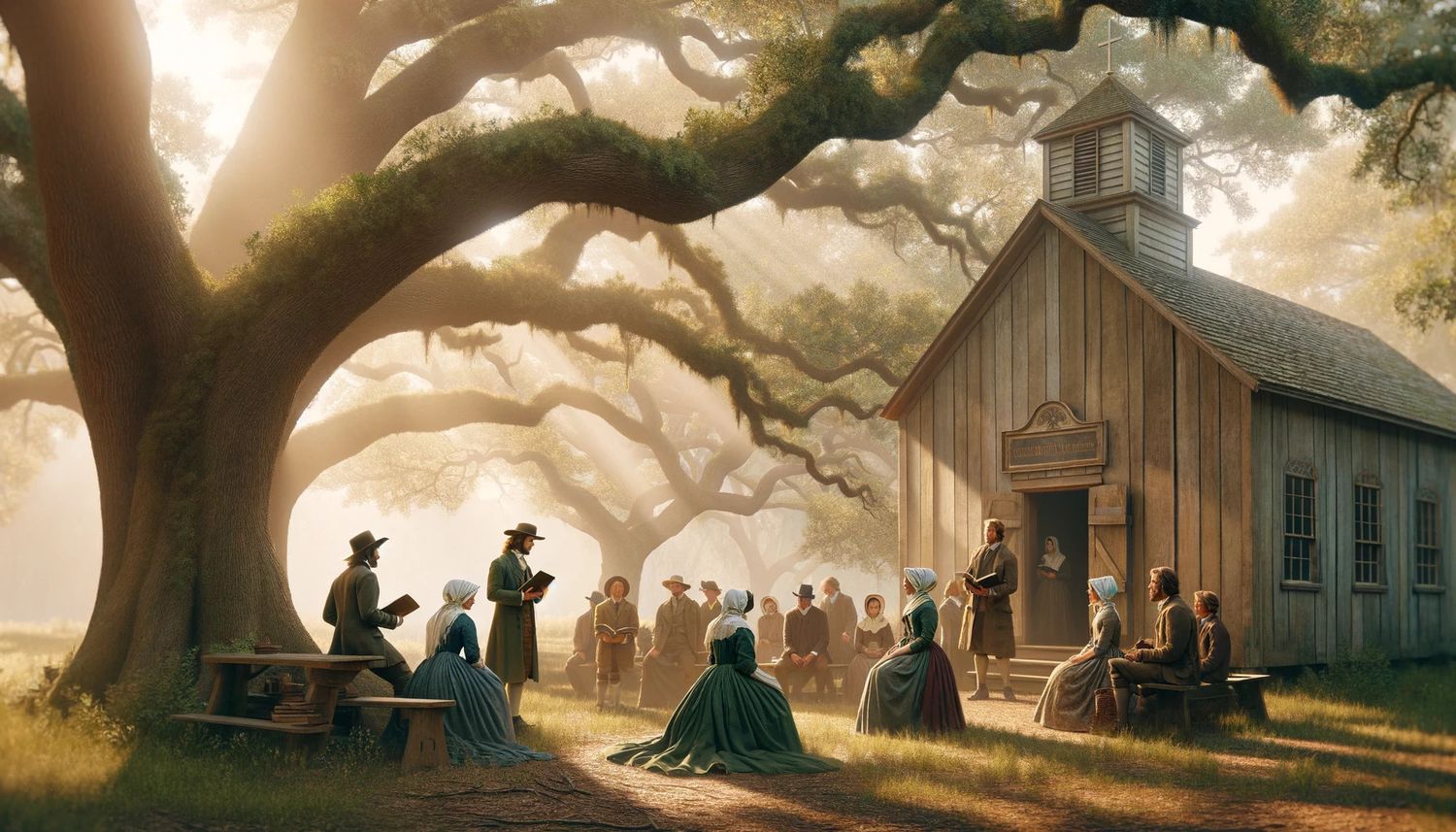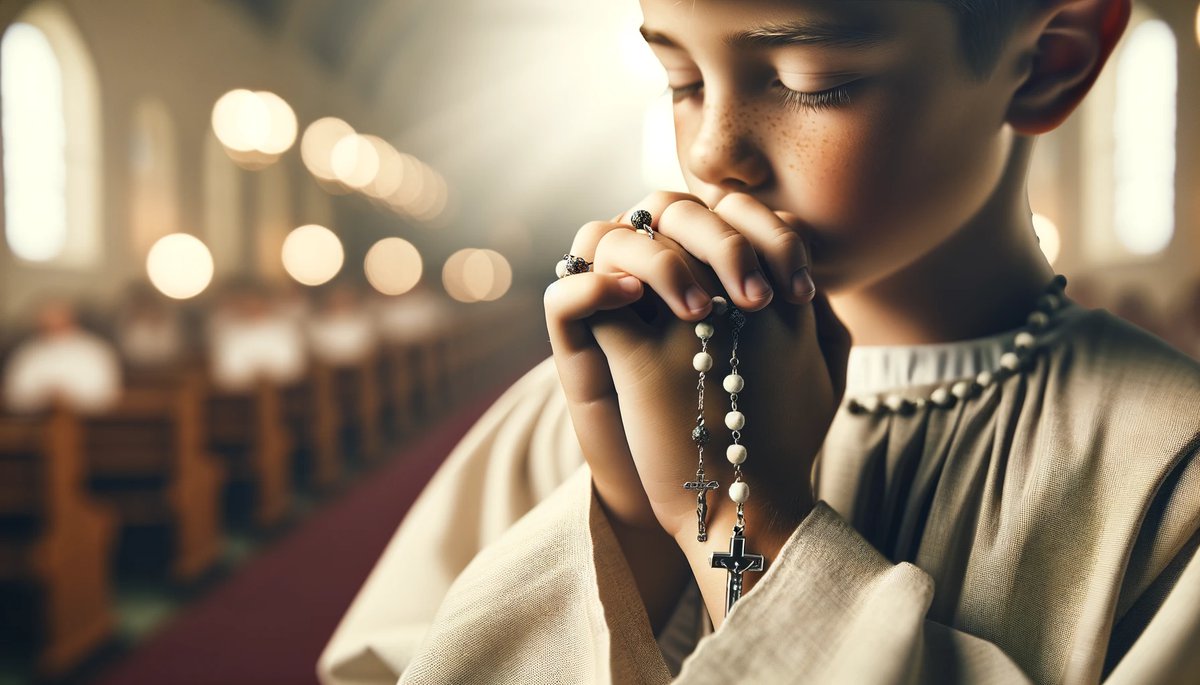Home>Theology and Spirituality>When Was The First Baptist Church In America
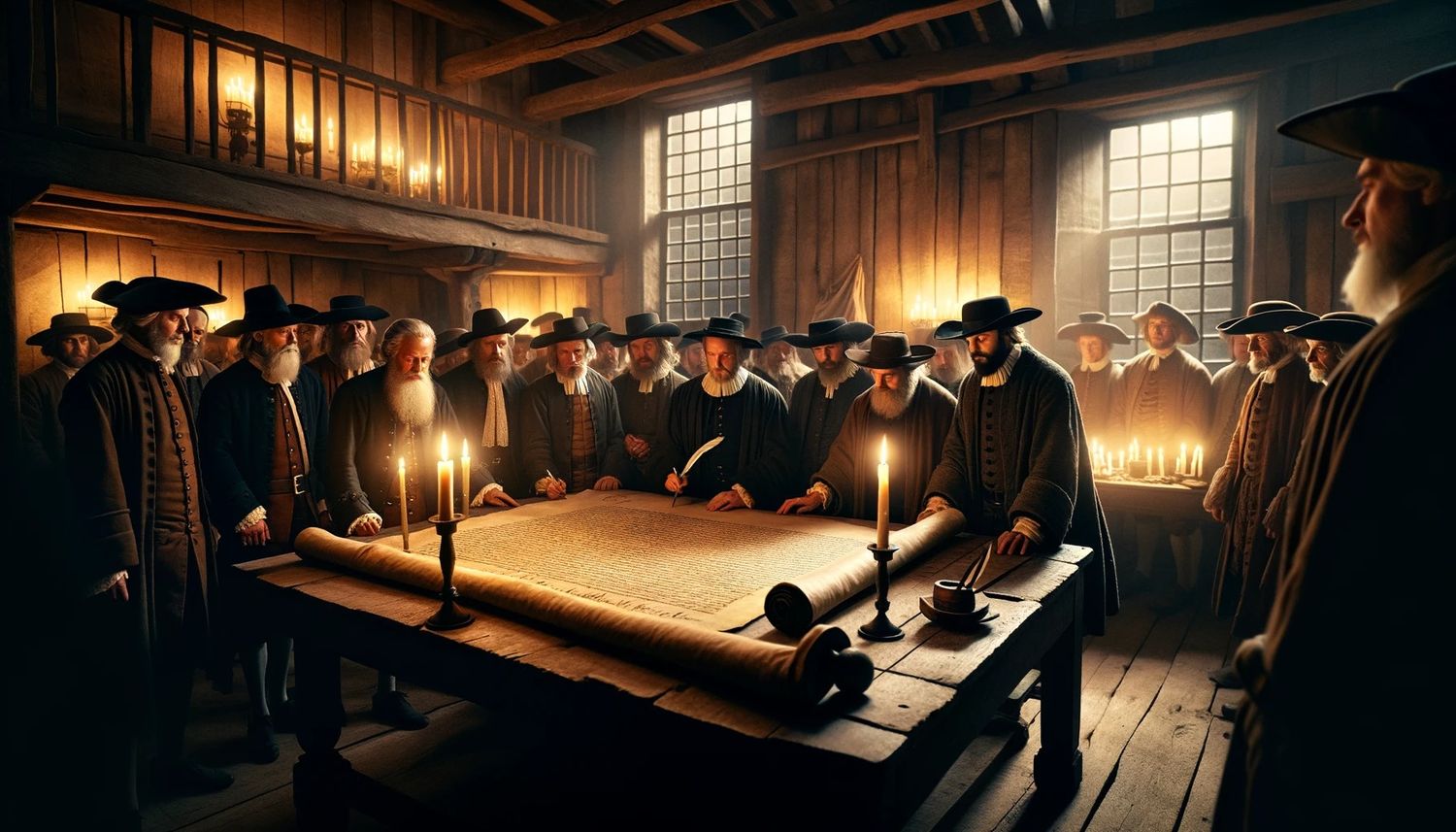

Theology and Spirituality
When Was The First Baptist Church In America
Published: February 23, 2024
Jason DeRose, Managing Editor at Christian.net, uses his expertise in religion and journalism to deepen understanding of faith's societal impacts. His editorial leadership, coupled with a strong academic background, enriches the platform’s diverse content, earning him recognition in both journalism and religious circles.
Discover the history of the first Baptist church in America and its impact on theology and spirituality. Learn about its founding and enduring legacy.
(Many of the links in this article redirect to a specific reviewed product. Your purchase of these products through affiliate links helps to generate commission for Christian.net, at no extra cost. Learn more)
Table of Contents
Introduction
The establishment of the First Baptist Church in America marks a pivotal moment in the history of religious freedom and the development of Protestantism in the New World. This significant event not only laid the foundation for the Baptist denomination in the United States but also played a crucial role in shaping the principles of religious liberty that are deeply ingrained in American society.
The journey of the First Baptist Church in America is a compelling narrative that intertwines the pursuit of religious autonomy, the quest for spiritual authenticity, and the resilience of a community driven by unwavering faith. As we delve into the origins, the influential figures, and the enduring impact of this historic institution, we gain a profound understanding of its profound significance within the broader context of American religious history.
The story of the First Baptist Church in America is not merely a historical account; it is a testament to the enduring human spirit and the unyielding determination to uphold the fundamental right to worship according to one's conscience. This narrative transcends time and continues to resonate with individuals seeking spiritual fulfillment and the freedom to express their faith without constraint.
As we embark on this exploration of the First Baptist Church in America, we are invited to immerse ourselves in a rich tapestry of faith, resilience, and the relentless pursuit of religious liberty. It is a journey that illuminates the essence of the human experience and the profound impact of unwavering conviction in the face of adversity.
Read more: What Is The First Baptist Church In America
The Establishment of the First Baptist Church in America
The establishment of the First Baptist Church in America can be traced back to the early 17th century, a time when religious persecution and doctrinal conflicts were pervasive in Europe. Against this backdrop, a group of English Separatists, who sought to break away from the Church of England and practice their faith autonomously, embarked on a journey to the New World in search of religious freedom.
In 1638, in the midst of the burgeoning settlement of Providence, Rhode Island, a pivotal moment in religious history unfolded. Roger Williams, a staunch advocate for the separation of church and state, played a central role in the founding of the First Baptist Church in America. Williams, who had been banished from the Massachusetts Bay Colony due to his radical beliefs, championed the idea of liberty of conscience and the unrestricted practice of religion.
The establishment of the First Baptist Church in America was a bold assertion of the fundamental right to worship without the imposition of state-sanctioned doctrines. This act of defiance against religious orthodoxy and governmental interference laid the groundwork for the flourishing of religious diversity and individual autonomy in matters of faith.
The founding members of the First Baptist Church in America, under the leadership of Roger Williams, embraced believer's baptism, a distinctive tenet of Baptist theology that symbolizes a personal commitment to the Christian faith. This act of baptism, administered to individuals upon their profession of faith, underscored the church's emphasis on voluntary association and the autonomy of the local congregation.
The establishment of the First Baptist Church in America was not merely a religious event; it was a profound declaration of the inherent right of individuals to worship according to the dictates of their conscience. This foundational principle, enshrined in the formation of the First Baptist Church, reverberates through the annals of American history as a testament to the enduring pursuit of religious liberty and the unwavering spirit of those who sought to uphold it.
The establishment of the First Baptist Church in America stands as a testament to the indomitable human spirit and the unyielding quest for spiritual authenticity. It represents a pivotal moment in the evolution of religious expression and the enduring legacy of those who dared to defy the constraints imposed by religious and political authorities.
The Role of Roger Williams
The establishment of the First Baptist Church in America owes much to the visionary leadership and unwavering conviction of Roger Williams. Born in England in 1603, Williams was a man ahead of his time, advocating for principles that would later become foundational to the American ethos of religious freedom and individual liberty.
Williams' journey to the New World was driven by a deep-seated commitment to the autonomy of conscience and the separation of church and state. His steadfast belief in the inherent right of individuals to worship according to their own convictions set him on a collision course with the religious and political authorities of his time.
Upon arriving in the Massachusetts Bay Colony in 1631, Williams quickly became embroiled in theological disputes and clashed with the Puritan leadership over matters of religious doctrine and the relationship between the church and the state. His outspoken views on the treatment of Native Americans and his staunch advocacy for the complete separation of civil and ecclesiastical authority further alienated him from the prevailing establishment.
In 1635, Williams was banished from the Massachusetts Bay Colony for his radical beliefs, prompting him to seek refuge among the indigenous Narragansett people. It was during this period of exile that Williams, undeterred by the opposition he faced, laid the groundwork for the establishment of Providence Plantations, a settlement founded on the principles of religious tolerance and individual freedom of conscience.
Central to Williams' vision was the concept of "soul liberty," which emphasized the inviolable right of every individual to worship according to the dictates of their own conscience, free from external coercion or imposition. This revolutionary idea, which formed the cornerstone of the First Baptist Church in America, embodied the essence of religious freedom that would come to define the American experience.
Williams' pivotal role in the founding of the First Baptist Church in America was a testament to his unwavering commitment to the principles of religious autonomy and the unyielding pursuit of liberty of conscience. His legacy endures as a beacon of courage and resilience, inspiring generations to uphold the fundamental rights of religious freedom and individual expression.
In the annals of American history, Roger Williams stands as a towering figure whose indelible contributions continue to resonate, shaping the enduring legacy of the First Baptist Church in America and the broader narrative of religious liberty in the United States.
The Growth and Influence of the First Baptist Church
The establishment of the First Baptist Church in America marked the beginning of a remarkable journey that transcended the confines of a single congregation and extended its influence far beyond the borders of Providence, Rhode Island. As the fledgling church took root and flourished, its impact reverberated throughout the burgeoning landscape of the New World, shaping the trajectory of religious expression and leaving an indelible imprint on the fabric of American society.
The growth of the First Baptist Church in America mirrored the broader expansion of Protestantism in the colonies, as waves of immigrants and settlers brought with them diverse religious traditions and theological perspectives. The church, founded on the principles of believer's baptism and individual autonomy, resonated with those seeking a departure from the hierarchical structures of established churches, offering a spiritual home for those yearning for a more personal and participatory form of worship.
Amidst the backdrop of religious fervor and the quest for spiritual authenticity, the First Baptist Church in America emerged as a beacon of religious liberty, attracting individuals who sought refuge from religious persecution and sought the freedom to worship according to the dictates of their conscience. The church's commitment to the separation of church and state, a principle championed by Roger Williams, resonated with those who yearned for a sanctuary where their faith could be practiced without the intrusion of governmental authority.
The influence of the First Baptist Church extended beyond the confines of its physical location, as its members, imbued with a fervent zeal for their faith, ventured forth to establish new congregations and spread the tenets of Baptist theology across the American landscape. The church's emphasis on the priesthood of all believers and the autonomy of the local congregation served as a catalyst for the proliferation of Baptist communities, each contributing to the rich tapestry of religious diversity that defines the American religious experience.
The enduring influence of the First Baptist Church in America is evident in its role as a vanguard of religious pluralism and individual liberty, shaping the ethos of a nation founded on the principles of freedom and self-determination. Its legacy continues to resonate in the myriad Baptist congregations that dot the American landscape, each a testament to the enduring impact of a small congregation that dared to defy convention and champion the fundamental rights of religious autonomy.
As the First Baptist Church in America expanded its reach and solidified its place in the annals of American religious history, it left an indelible mark on the evolving narrative of religious expression, serving as a testament to the enduring power of faith and the unyielding spirit of those who sought to carve out a space for religious freedom in the New World.
The Legacy of the First Baptist Church in America
The legacy of the First Baptist Church in America transcends the confines of a single institution, weaving itself into the very fabric of the American narrative. From its humble beginnings in the fledgling settlement of Providence, Rhode Island, the impact of the First Baptist Church reverberates through the annals of American religious history, leaving an indelible imprint on the ethos of religious freedom and individual autonomy.
At its core, the legacy of the First Baptist Church in America is rooted in the uncompromising pursuit of religious liberty and the unwavering commitment to the autonomy of conscience. The foundational principles espoused by the church, including believer's baptism, the separation of church and state, and the priesthood of all believers, continue to resonate with individuals and communities across the United States, embodying the enduring spirit of religious pluralism and the right to worship according to one's own convictions.
The legacy of the First Baptist Church extends beyond theological doctrine, encompassing a profound commitment to social justice, equality, and the inherent dignity of every individual. Throughout its storied history, the church has stood as a beacon of hope for those marginalized and oppressed, advocating for the rights of the disenfranchised and lending its voice to movements aimed at fostering a more just and equitable society.
As the First Baptist Church in America navigated the tides of history, it embraced the evolving landscape of American society, adapting to the changing needs of its congregants while remaining steadfast in its foundational principles. Its legacy is one of resilience, adaptability, and a steadfast dedication to the enduring values of faith, freedom, and community.
The influence of the First Baptist Church in America is palpable in the myriad Baptist congregations that dot the American landscape, each a testament to the enduring impact of a small congregation that dared to defy convention and champion the fundamental rights of religious autonomy. The church's legacy lives on in the hearts and minds of those who continue to uphold the principles of religious freedom and individual expression, carrying forward the torch of liberty ignited by the pioneers of the First Baptist Church.
In the tapestry of American religious history, the legacy of the First Baptist Church in America stands as a testament to the enduring power of faith and the unyielding spirit of those who sought to carve out a space for religious freedom in the New World. It is a legacy that continues to inspire, embolden, and resonate with all who cherish the fundamental rights of conscience and the unalienable freedom to worship according to one's own beliefs.
